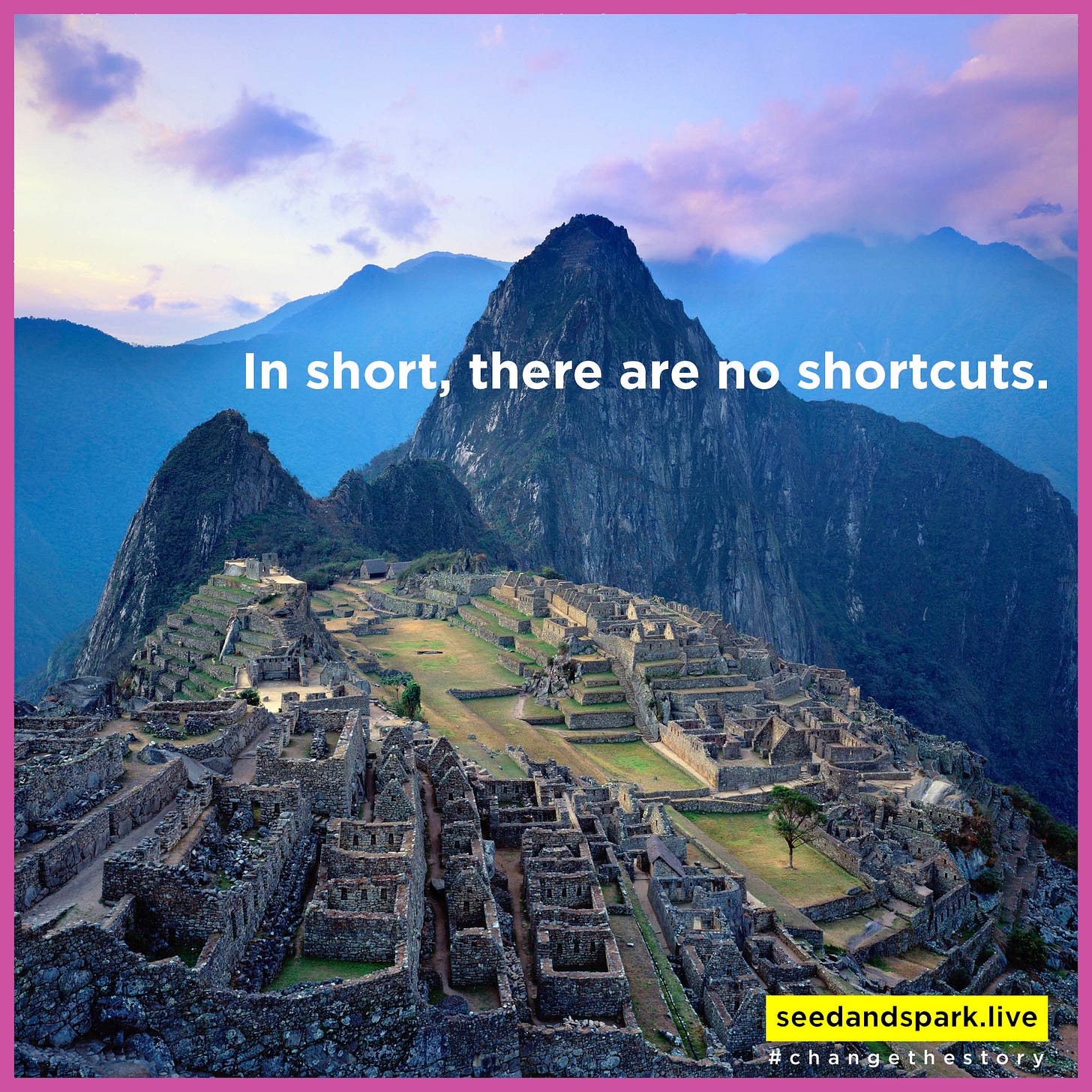What Wimbledon Can Teach Us About Who We Are (& Who We're Becoming)
Pay close attention, please . . .
Yesterday, as Jannik Sinner and Carlos Alcaraz resumed their scintillating rivalry at Wimbledon, I went about my lazy Sunday.
I worked out, ran errands, and went out to a long lunch before even turning on the TV, where, predictably, I found them, the two greatest men’s players in the world, several hours into their latest battle for supremacy, one that is always determined by the slimmest of margins.
Last month, at the French Open, they delivered a legendary match that ran almost six hours long. And although yesterday’s three-hour final seemed pedestrian in comparison, the Sinner/Alcaraz rivalry is so gripping because it is so fundamentally a battle of attention -- and who can hold theirs for longer, amidst a marathon match between two players who are equally talented physically.
It’s a fitting time for such a rivalry to capture our attention, when the attribute these two athletes embody is precisely the thing we seem to be losing as a species. The New York Times’ Ezra Klein recently said as much in a long interview with Kyla Scanlon, a leading theorist of the economics of attention.
“We used to need things to raise money or move through the world,” Scanlon said. “But now you can just have attention. So no longer is the economic foundation something like land. It’s attention, then narrative. The story that you tell to gain that attention is the capital that inflates the attention itself.”
To see this principle in action, look no further than the Trump presidency. “Trump isn’t trying to distract you,” Klein argued. “Trump is himself distracted. He doesn’t understand this better than anybody else does — he embodies it. He really is like the algorithm — he lives for the moment. It’s all about the current thing. And when the current thing moves on, so does he.”
So we are being led by the human embodiment of a social media algorithm at the same time our attention is being commodified -- and our reliance on A.I. is intensifying. As Samantha Hill wrote in a piece from yesterday’s paper, “the danger is not that A.I. will replace human connection. The danger is that it will make us forget what actual connection requires while eroding our ability to think for ourselves by training us to depend on A.I. for the simplest of tasks and interactions.”
Of course, whether A.I. becomes a force for good or ill in our society largely depends on how it is treated in our nation’s schools. So it felt right on cue last week when the country’s largest teachers union announced a partnership with the major tech companies to build a $23 million National Training Academy for A.I. Instruction. “The academy is a place where educators and school staff will learn about A.I.,” explained AFT’s president Randi Weingarten, “not just how it works, but how to use it wisely, safely and ethically.”
To which I say: maybe.
But if the tech giants remain intent on profiting off our attention (and they are), how confident can we be that their efforts to shape the use of A.I. in America’s classrooms will contribute to the change we seek -- and not merely be one more nail in the coffin of our capacity to practice the kind of sustained discipline and focus that was once again on display at yesterday’s Wimbledon final?
Because while most of us will never know what it feels like to be a world-class athlete, all of us need to know what it feels like to really sustain our attention at something, and struggle with it, and improve over time. And that is precisely what these tech companies are trying to elide.
“Right now,” Scanlon explained, “we’re at this phase of technology where we’re trying to establish the human part of it. And we’re not doing a good job at figuring out where humans need to be in the technology equation. And instead we’re like: We’re just going to automate everything. And sorry, we don’t have a plan for people.”
“Attention has become more like capital,” Klein added, “and you need to know how to raise it. But just like with capital, to succeed in the long run you also need to know how to spend it. I think right now there’s a lot more sophistication in the raising of attention than the spending of attention. And that’s going to be societal learning we will all go through together — and not painlessly.”




GOOD LORD are we aligning, brother—tennis AND attention!? Commenting here now for the sake of urgency and convenience, but intending to do another reread of this relative to how I responded to that podcast, too. And to Wimby. And to all we've talked about. Thanks for this, Sam. Chat soon.
Such an important post, particularly drawing attention to how we spend attention and being sure educators are thinking about this with for their students.